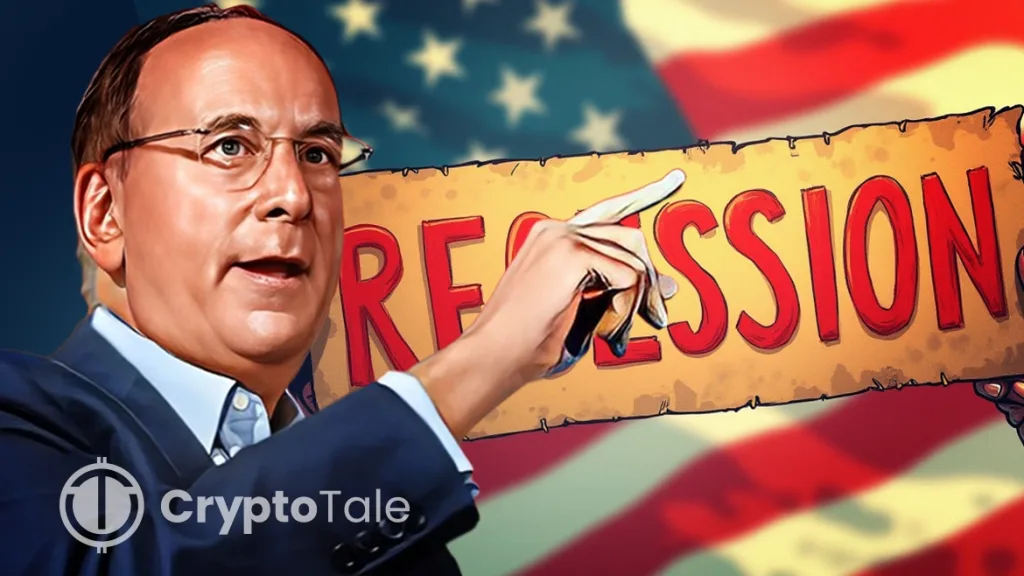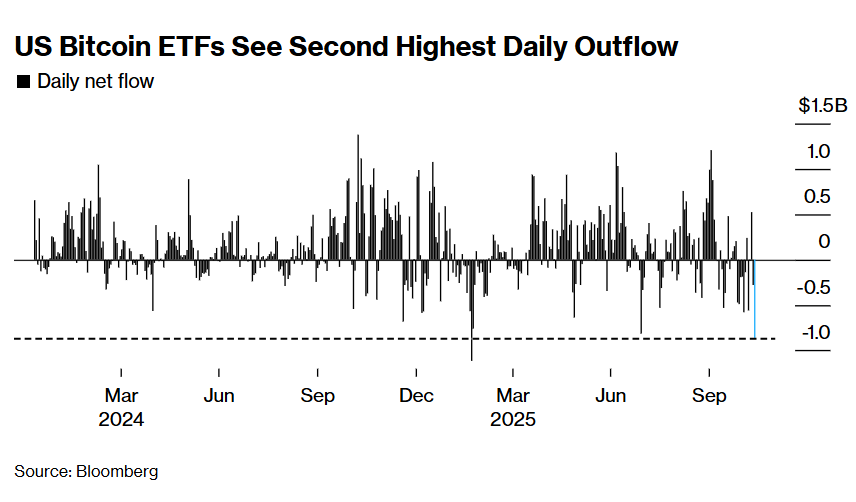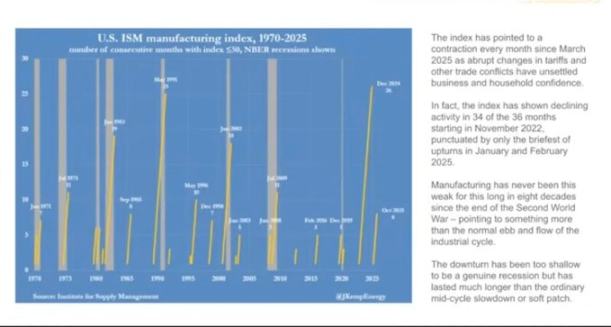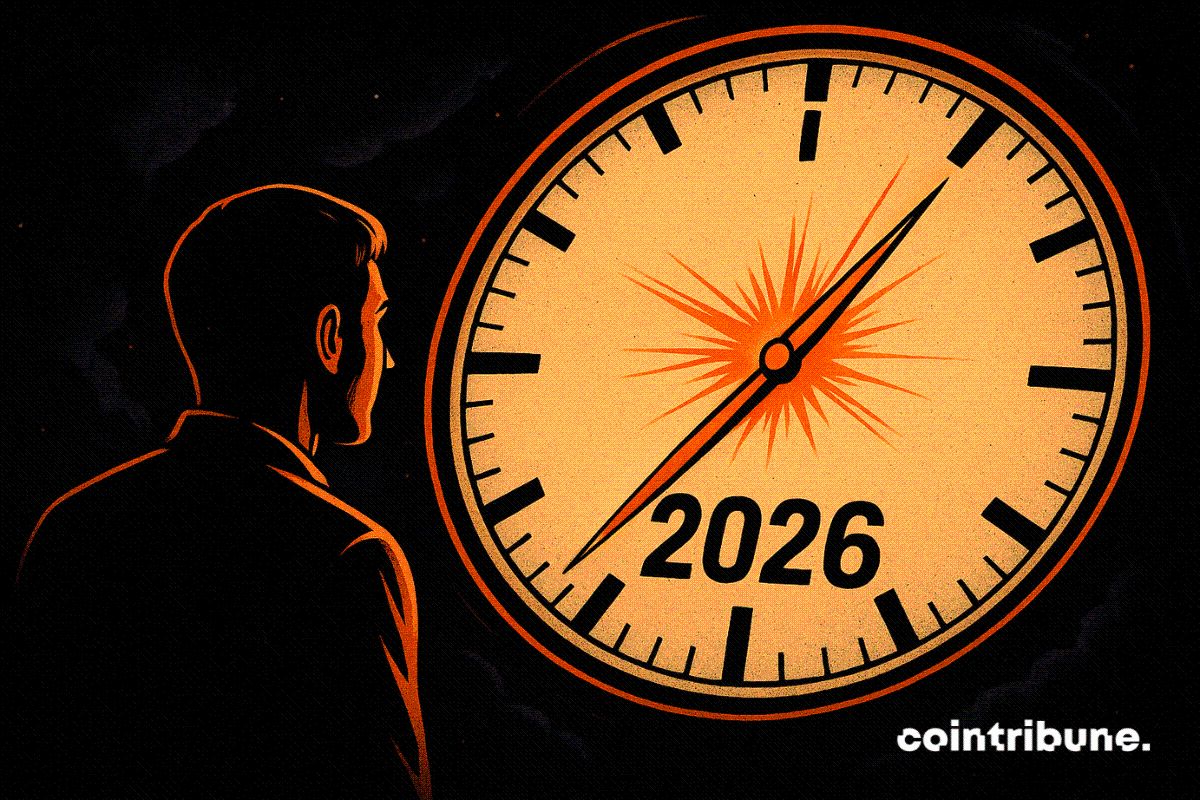BlackRock CEO Warns of Recession Amid Trump’s Tariff Moves

- Larry Fink says the U.S. is likely in a recession as Trump tariffs heighten economic risk.
- Despite recession fears and market volatility, BlackRock reported $84B in Q1 net inflows.
- Trump’s 145% tariffs on Chinese imports triggered market sell-offs and investor caution.
BlackRock CEO Larry Fink said on Friday that the U.S. economy may already be in a recession following President Donald Trump’s broad tariff rollout. During a CNBC appearance, Fink stated that the recent trade actions have increased economic uncertainty and dampened investor sentiment.
Fink’s remarks came just hours after Trump announced a 90-day pause on the tariffs. Despite this move, the asset manager expressed concern that the pause may only extend market anxiety. He added that policy clarity delays could further slow economic activity, affecting both businesses and consumers.
The U.S. President implemented a flat 10% import tax on most goods and raised tariffs on Chinese products to 145% after earlier levies of 20%. In response, China retaliated by increasing its duties on American goods to 125%. Fink noted that such policy shifts disrupt market confidence and long-term planning.
Economic Indicators Reflect Growing Uncertainty
Despite positive figures in job growth and retail sales, several indicators suggest early signs of a downturn. Fink suggested that recent consumer spending might reflect stockpiling ahead of anticipated price hikes rather than stable demand. Further, BlackRock’s data shows a surge in cash holdings, which he interpreted as a sign of risk aversion.
A market response to tariffs prompted Goldman Sachs to increase its recession probability prediction from 35% to 45%. The S&P 500 recorded its biggest two-day market decline since March 2020, demonstrating deep investor worry. According to JPMorgan executive reports, clients have modified their actions by postponing buying decisions and lowering their exposure to potential risks.
Additional financial sector leaders shared Fink’s perspectives. Wells Fargo faces corporate client reluctance stemming from unstable business policies, while KPMG detects escalating oversight of financial decisions and credit risk. Treasury yields have also reacted sharply, reflecting longer-term worries about U.S. economic stability.
Related: Trump Claims World Leaders “Kissing His Ass” Over Tariffs
BlackRock Earnings Stable, But Market Mood Shifts
While BlackRock exceeded expectations with adjusted Q1 earnings of $11.30 per share, its revenue of $5.28 billion slightly missed analyst estimates. The firm reported $84 billion in net inflows and $11.6 trillion in assets under management. Despite the earnings, Fink emphasized that most client discussions centered around uncertainty and risk management.
He also stated that long-term investment trends like artificial intelligence (AI) and infrastructure remain intact. However, he acknowledged a growing interest in European assets, hinting at potential capital reallocation if U.S. market volatility continues.
Speaking earlier at the Economic Club of New York, Fink mentioned that many CEOs share his concerns and concluded that while the U.S. is not in a financial crisis, economic conditions remain fragile and ongoing policy changes could deepen recession risks.
The post BlackRock CEO Warns of Recession Amid Trump’s Tariff Moves appeared first on Cryptotale.
Disclaimer: The content of this article solely reflects the author's opinion and does not represent the platform in any capacity. This article is not intended to serve as a reference for making investment decisions.
You may also like
As economic cracks deepen, bitcoin may become the next liquidity "release valve"
The US economy is showing a divided state, with financial markets booming while the real economy is declining. The manufacturing PMI continues to contract, yet the stock market is rising due to concentrated profits in technology and financial companies, resulting in balance sheet inflation. Monetary policy struggles to benefit the real economy, and fiscal policy faces difficulties. The market structure leads to low capital efficiency, widening the gap between rich and poor and increasing social discontent. Cryptocurrency is seen as a relief valve, offering open financial opportunities. The economic cycle oscillates between policy adjustments and market reactions, lacking substantial recovery. Summary generated by Mars AI. The accuracy and completeness of this summary are still being iteratively updated by the Mars AI model.

The wave of cryptocurrency liquidations continues! US Bitcoin ETF sees second highest single-day outflow in history
Due to the reassessment of Federal Reserve rate cut expectations and the fading rebound of the U.S. stock market, the crypto market continues to experience liquidations, with significant ETF capital outflows and options traders increasing bets on volatility. Institutions warn that technical support for bitcoin above $90,000 is weak.

When traditional financial markets fail, will the crypto industry become a "pressure relief valve" for liquidity?
As long as the system continues to recycle debt into asset bubbles, we will not see a true recovery—only a slow stagnation masked by rising nominal figures.

A Quiet End to 2025 Could Prime Crypto for a 2026 Breakout, Analysts Say

